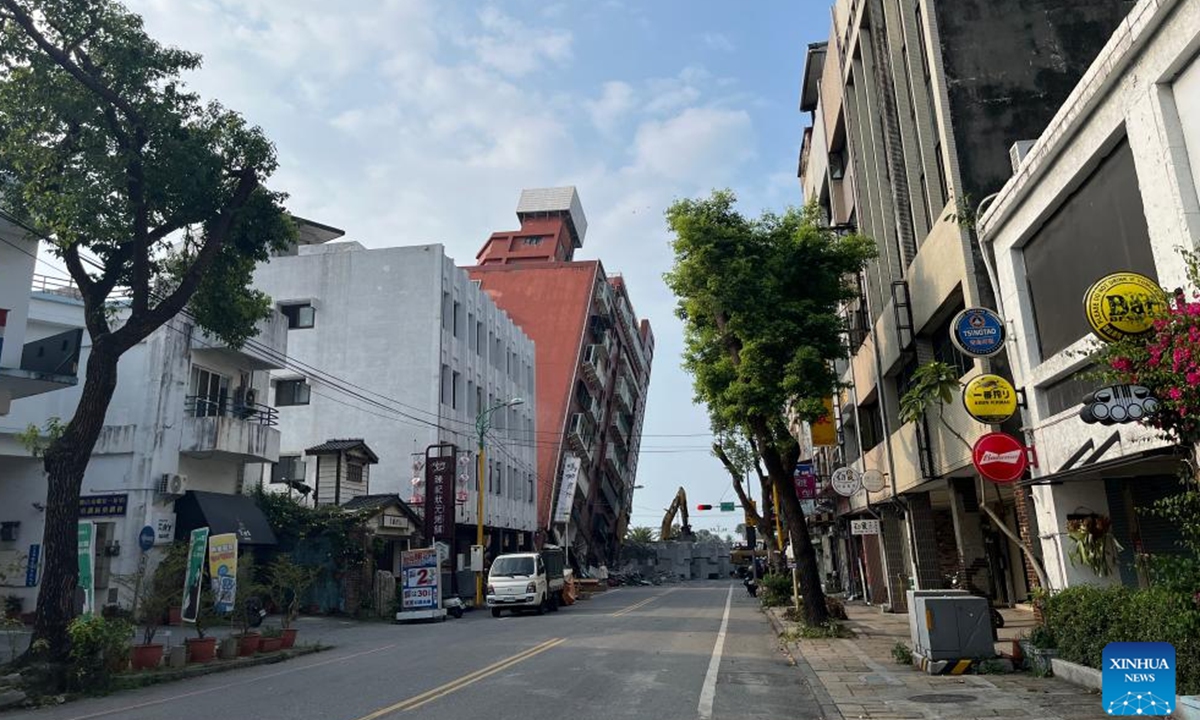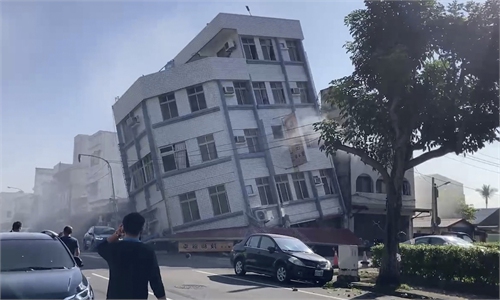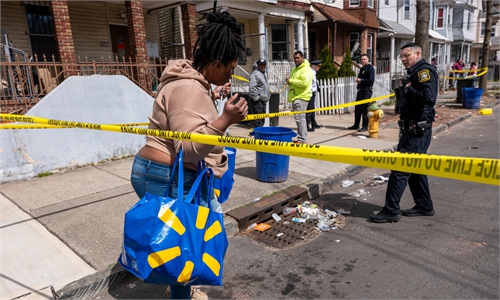DPP authorities' politicization of earthquake a 'secondary disaster' to Taiwan residents

This photo taken on April 4, 2024 shows a street view of Hualien after a 7.3-magnitude earthquake in southeast China's Taiwan. Photo:Xinhua
As relief operations for Taiwan island's strongest earthquake in 25 years, which struck Hualien on Wednesday, continue, a "secondary disaster" is emerging in the political sphere, putting the lives and well-being of the island's residents, especially those affected by the disaster, at risk.
After the earthquake, the Ministry of Foreign Affairs of Bolivia issued a statement "expressing solidarity with the People's Republic of China," which angered the Taiwan authorities. The leader of the island's "external affairs" authority Joseph Wu on Saturday called Bolivia "a pathetic puppet," while refusing to recognize the island as part of China. At the same time, Taiwan's "external affairs" authority issued a separate statement, saying the incident once again highlighted the mainland's "shameless behavior of using the earthquake in Taiwan to conduct cognitive warfare in the international arena."
However, it is clear to see that it is the Democratic Progressive Party (DPP) authorities who are pathetically using this disaster to create momentum for their secessionist attempts in the international arena.
In fact, in the past, whenever some countries, regions or international organizations abide by the globally recognized one-China principle to do what Bolivia did this time, it would drive the DPP authorities so crazy that they kept on attacking the relevant parties and smearing the Chinese mainland, trying to provoke antipathy toward the mainland within the island and the international community.
The DPP authorities have been accustomed to seizing every opportunity to blame the mainland for almost everything, aiming to energize the secessionist forces on the island and pushing Taiwan further toward the "independence" path. Be it a proposal to help or words reflecting compatriot love from the mainland, they interpreted it with malicious intention and labeled it "united front activities."
Not long after the earthquake in Hualien took place, many netizens from the mainland sent their sincere wishes for the safety of Taiwan compatriots, hoping that the consequences of the disaster would be minimized. China's State Council Taiwan Affairs Office also expressed its willingness to provide assistance. Yet, Taiwan's "mainland affairs council" has declined the mainland's gesture of goodwill, insisting that there is no need for the mainland to help. This is in stark contrast to DPP authorities' gratitude to other countries and regions offering assistance.
Beijing's wish to help the Taiwan region is sincere, because it has always regarded the island as part of the family, and will not sit idly by when Taiwan compatriots suffer in disaster. Earthquake relief is not political; it needs to transcend all the entanglements of cross-Straits grudges.
Zhang Wensheng, deputy dean of the Taiwan Research Institute at Xiamen University, told the Global Times, that the Chinese mainland is the closest to the Taiwan region in terms of language, culture and geography and, thus, knows what the island needs the most. Taiwan's disaster relief and post-disaster reconstruction will become easier if the DPP authorities accept the assistance of the Chinese mainland, said Zhang.
Judging from the news reports coming from the island these days, Taiwan is still desperately in need of help in disaster relief efforts. People on the two sides of the Taiwan Straits are compatriots whose blood is thicker than water, and if one can help another in the face of disasters, it will obviously promote cross-Straits people-to-people exchanges, especially against the backdrop of current political tension between the mainland and Taiwan.
The DPP authorities intentionally let this opportunity to ease cross-Straits relations by promoting communication and understanding slip away. They rejected goodwill from the mainland based solely on their anti-mainland ideology, laying bare their nature as secessionist forces and their fear of improving relations between the people on both sides of the Taiwan Straits.
In times of disaster, politicization doesn't save lives. The DPP authorities have turned earthquake relief efforts into a political struggle with the mainland, while making a fuss about expressions of solidarity and condolence from other countries and regions following the Hualien earthquake. They prioritize political selfishness over the lives of the Taiwan residents who will ultimately suffer as a result.


